Pharaoh
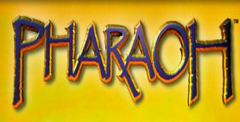
| a game by | Impressions Games |
| Platform: | PC (1999) |
| User Rating: | 7.1/10 - 23 votes |
| Rate this game: | |
| See also: | SimCity Games |
It came, it saw, and it conquered. Caesar III, last year's Rome 'em-up, proved to be one of the most addictive games of all time. Not content with replicating life in Roman times, the Impressions team has shifted their focus towards Egypt, land of sun, sand, slave labour and elaborate monuments. Despite the change of scenario, Pharaoh uses the same engine as its predecessor, a fact that has led cynics to label it 'Caesar 3 with pyramids'.
There's no denying that the basic gameplay elements are the same, and for those who missed out last time round, they go a little bit like this: faced with little more than a barren wasteland, you have to build a city from the ground up, populate it, and provide a decent standard of living for your citizens, who will demand food, jobs, education, entertainment, protection, and all the beer they can drink. Religion also plays a major role, and various gods must be appeased through building temples and holding festivals, with failure to please them resulting in a blight upon your land.
So far, so Sim Ancient. You start by laying a couple of plots of land, some proles move in and construct rudimentary shacks, and you give them a water supply so they can wash their arses. A lack of fast food establishments is evident so you build a hunting lodge, enabling them to slaughter ostriches, apparently the equivalent of KFC in Egyptian times. Food is stored in granaries and distributed among the masses via a series of bazaars. Ostrich with a side dish of ostrich isn't the most balanced of diets, though, and farming a variety of foodstuffs is key here. Farms can mainly be built in the flood plain of the Nile, and this is where Pharaoh differs from Caesar, as farms are underwater for a sizeable part of the year. This means that enough food has to be stored to feed the populace for the remainder of the year -although, as a back-up, parts of the mainland can be irrigated with ditches.
It S Just Gone Noon...
The flooding has a further knock-on effect, though, in that it leaves thousands of burly farmers with time on their hands. You don't want them worrying the livestock, and with no income support process in place, you need to find work for idle farmhands to do.
Job creation Egyptian-style is a world away from today's Restart schemes, though, and involves constructing vast monuments that will last for thousands of years. We're talking pyramids, naturally, not to mention the odd sphinx, or even a mastaba, whatever that is. The pyramids come in three sizes and even the smallest takes an absolute age to build. One of the good things about Caesar III was the fact that buildings could be constructed immediately, and this is still largely the case in Pharaoh, except in the case of the major monuments. A sphinx has to be hewn from a rough chunk of rock, whereas pyramids have to be meticulously constructed block by block. It's an arduous process, and one that is exacerbated by the fact that just as you're making progress, your workers down tools and go back to the more leisurely pursuit of farming. And when you finally do finish a pyramid, you then have to fill it with trinkets to accompany the deceased on his journey into the afterlife. Tomb Filler, if you like.
Half-Past Monsoon...
Other than that, it's business as usual. What begins as a couple of squalid homesteads soon grows into a vast, sprawling city as your life ticks by. It's certainly compulsive, although whether it's actually fun is a different matter, but the same argument can be levelled at many games.
There is definitely some satisfaction to be gleaned from overcoming problems, although this is inevitably tempered by feelings of self loathing at having wasted hours of your life doing so. If you consider your time spent on earth as a life sentence, then this is one way of getting through chunks of it. That said, it's quite possible to leave the game running for a while and go about your business.
Other tweaks from Caesar III include the introduction of roadblocks, which restrict fire officers and so forth to a certain area. This prevents key workers from wandering around aimlessly while the city crumbles, which was one of the criticisms levelled at Caesar III. It does work in the short term, although once the city reaches a certain size it becomes largely impossible to keep track of things.
On The Banks Of The River Nile...
A further criticism of the Caesar III engine was the jerky scrolling. Sadly, this is still the case and over the course of a six-hour session it genuinely starts to wreak havoc with your eyes, leaving you with the slightly disconcerting feeling that your head is caving in from the inside. If you can take the physical debilitation and the grossly antisocial aspect, though, there is certainly value for money in Pharaoh. That said, if you've never played Caesar III, you might as well just try to get that cheap. Roman times somehow seem more fitting, probably because the Egyptians never quite got round to invading Britain. With the whole flooding and monument issue to consider, it could be argued that Pharaoh is the more advanced game, although it could just as viably be argued that it's a pain in the arse.
Pharaoh is definitely a commitment, and sometimes you think you might be better off having a quick blast of FIFA and then going down the boozer for a skinful and a fight. But it must have something going for it to keep you transfixed for more time than is healthy, and if you fancy staying in, this will ensure that you do. Which is no bad thing because, as everyone knows, there are people out there who can hurt you.
Download Pharaoh

System requirements:
- PC compatible
- Operating systems: Windows 10/Windows 8/Windows 7/2000/Vista/WinXP
Game Reviews
In the year since its release, Caesar III has earned a reputation as the definitive Roman Empire builder. So, having exhausted the strategic possibilities of that era, developers Impressions now plan a prequel of sorts, in the shape of Pharaoh, set - as the title suggests - in Ancient Egypt. Using an enhanced Caesar III engine, your basic goal remains unchanged: build and survive. The route to success couldn't be more different from Caesar III. You see, the Egyptians and Romans had a completely opposing culture, a fact that's reflected in the diversity of gameplay between the two titles. The Romans were conquerors, whose main goal was expansion through military might, whereas the Egyptians were God-fearing builders and merchants, content with subsisting from the river Nile.
Down By The River Nile
It's not surprising, then, that the Nile plays a pivotal role in Pharaoh, forcing some difficult resource management decisions from the start. Settling a community on the banks of the river provides a fertile arable farming environment (which will supply two good harvests a year), but the benefits have to be weighed against the unpredictable and devastating floods which destroy crops and leave people starving. On the other hand, cultivating land away from the Nile has its own drawbacks because the soil is acidic and the irrigation system perfected by the Romans remains years away from fruition. So unless you risk building by the river, water will need to be carried to and from your chosen settlement, and you'll have to spend valuable time perfecting your fishing and hunting skills to make up the deficiency in the food supply. That first quandary aside you'll soon find plenty of time for the Egyptians' favourite pastime - building.
Building For The Future
Bearing in mind that no-one knows how the Egyptians constructed their buildings, Impressions have taken a bit of artistic licence in allowing you to build temples, shrines and obelisks from the ground up, stone by solitary stone (it's a massive 'hands-on' improvement over the 'select this building and drop it there' simplicity of the Caesar titles). Seasoned gamers will relish the long-term challenge of building pyramids and Sphinxes, but they'll be handicapped by the lack of a willing workforce for such backbreaking work, meaning that heavy-handed persuasion may be required to coerce bricklayers and stonemasons. Time spent constructing these aesthetically pleasing monuments isn't wasted, though. Throw up a temple to the God Of War and you'll be supplied with troops to protect your borders (they'll happily build defensive walls and guard towers to protect your citizens); bestow a temple or two on the Sun God and the deity will ensure that the Nile holds its banks for another year (meaning that crops are assured and more rime can be allocated to building work). Given gentle encouragement, you'll soon find your society spreading along the banks of the Nile and becoming reasonably self-sufficient, allowing time to tackle any one of 30 available scenarios. These 'task-specific' missions give you the opportunity to play on your strengths. If economic management appeals, you can preside over housing issues, organise civil and local government, monitor tax collection and maintain educational facilities. In time, fiscal emergencies will arise and some hard decisions may mean robbing Peteus to pay Paulus - after all, your lavish banqueting and entertainment budget (which includes in-house dancers and jugglers) comes before the need to run a decent health service.
If balancing the budget of a growing populace doesn't excite, or you're worried that the feedback from the natives isn't too encouraging, you'll no doubt warm to the newly included sea-based combat options, which allow the building of warships (equipped with deadly ramming gear) with which to protect your transport vessels. In general, both land and sea-based combat is automated, but if the enemy brings the fight to your doorstep, you will be able to ram an invading ship with your galley, or mow down enemy soldiers with your chariot (Sen Hur-style), depending on the circumstances.
It's All New
Game mechanics aside, the graphics have improved dramatically and the pop-up information screens that had little narrative impact in the Caesar series have been replaced with dynamic animation at plot-critical points. The familiar point-and-click interface returns, but is now reduced to 5 per cent of the play area (that's the sort of groundbreaking attention to detail that Caesar fans expect, and it will no doubt be 'borrowed' by other developers). Impressions have added idiot-proof map and scenario editors (which will, no doubt, spawn a healthy Internet-led swapping community and extend the shelf life of the game), and they've included a city construction kit for those who simply want to build an idyllic paradise secluded from the real world.
Obviously aware that this may all be slightly daunting for Caesar virgins, Impressions have improved the AI of your tactical adviser: instead of just telling you there's a problem, he'll now suggest a series of (often daunting) solutions (a bit like being married). The difficulty has been finish and understand the tutorial missions, your city should run like clockwork. With work on Pharaoh continuing a lot faster than the actual ancient Egyptians built the pyramids, it's reassuring to note that while the chronology of the series has gone backwards, the gameplay appears to be coming forwards in leaps and bounds.
The excellent Caesar III proved to be one of the creeper hits of last year, reducing at least one member of the ZONE team to a husk, and racking up an impressive 400,000 sales in the process. In the current climate, the obvious thing to do next would be to change a couple of typefaces, redesign the box and call it Caesar IV. However, veteran developers Impressions have decided not to go down that route (not yet, anyway), and have spent the interim period slaving away on the forthcoming Pharaoh, pictures of which adorn this page for your visual stimulation.
Have you had a look? What sort of game do you think it is, then? A first-person-shooter? A future sport simulation? Of course not. Impressions make real-time strategy games, and Pharaoh should slot comfortably into their highly successful city-building series. Set in ancient Egypt (as you might have guessed) during the period when the great pyramids were built, this city simulation game enables you to create majestic Egyptian cities, build large monuments, and farm at the mercy of the Nile River.
Set in Old, Middle and New Kingdom Egypt, the game spans the period from 2900 to 700 BC, and the campaigns correspond roughly to the historical ages. Building pyramids clearly plays a big part, as does harnessing the power of the Nile, with seasonal flooding adversely affecting the daily routines of the local inhabitants. Those inhabitants include dancers, jugglers, papyrus makers, hunters and embalmers, all adding to the rich tapestry of Egyptian life, and all at your mercy. Primitive villages can be built into thriving metropolises, or your poorly managed city can be pillaged or burnt to the ground. Manage it well and ultimately the greatest Egyptian structures will be built in your honour. Which is nice.
Pharaoh claims to include many features never seen before in a citybuilding series game, including a farming model based on the flooding of the Nile, naval warfare, giant monuments that are assembled over time, and a unique dynastic progression. It looks great, but if all they've done is throw a few sphinxes into the Caesar III engine then there'll be uproar among the masses, or at least some embittered grumbling by a clutch of angry loners. Impressions are not known for cocking things up though, so for now we'll give them the benefit of the doubt. Bring it on.
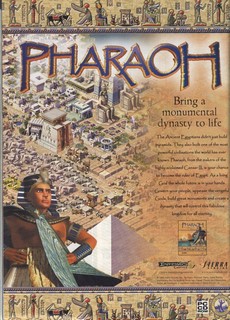

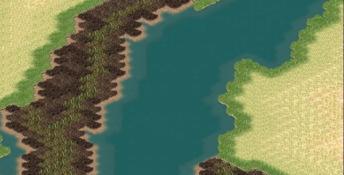
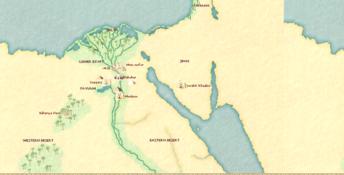
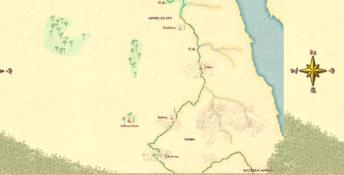
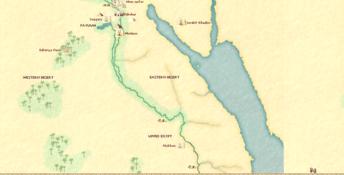
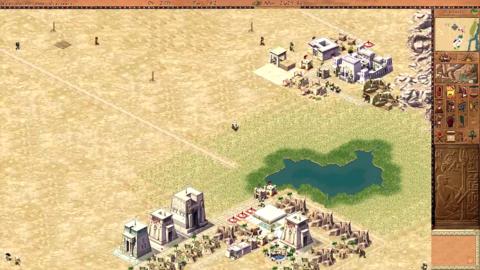



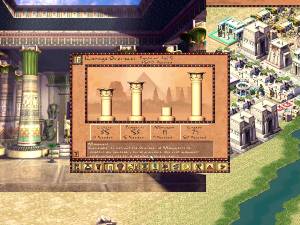
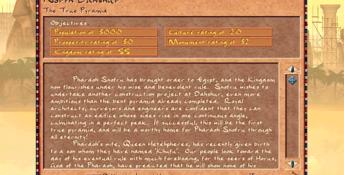
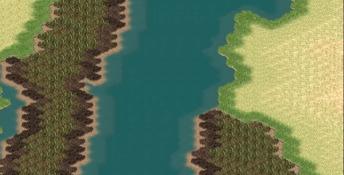
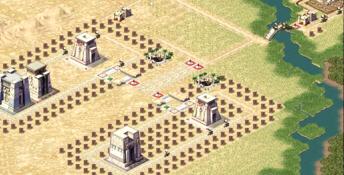
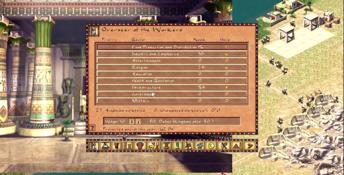
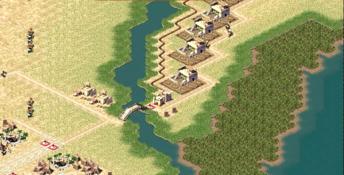
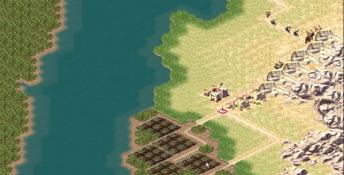
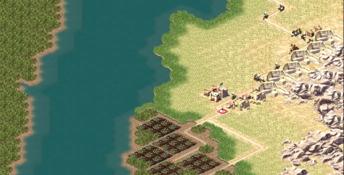
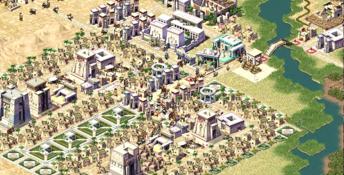
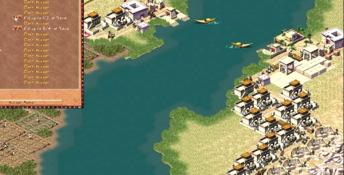
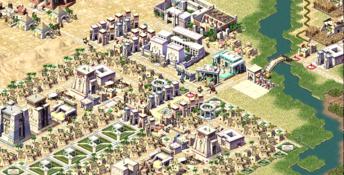
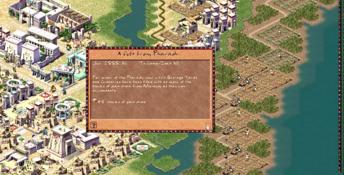
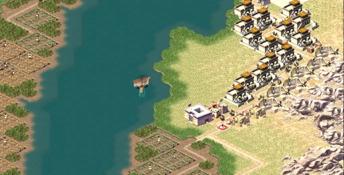
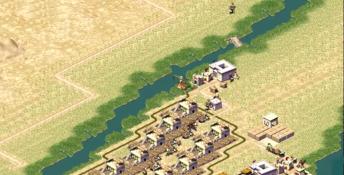
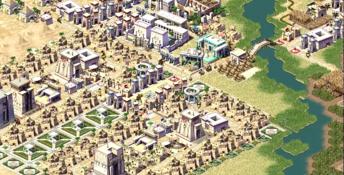
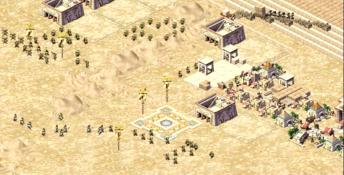
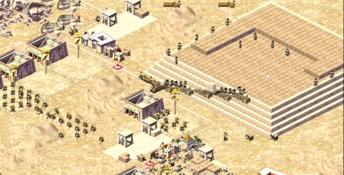

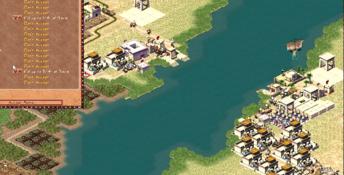
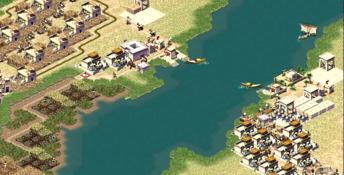
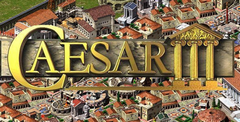 Caesar 3
Caesar 3
 CivCity: Rome
CivCity: Rome Mall Tycoon 3
Mall Tycoon 3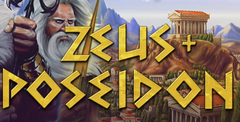 Poseidon: Zeus Official Expansion
Poseidon: Zeus Official Expansion
 Seal Of The Pharaoh
Seal Of The Pharaoh
 Stronghold
Stronghold Taiwan Tycoon
Taiwan Tycoon
 Tricky Kick
Tricky Kick
 Tycoon City: New York
Tycoon City: New York